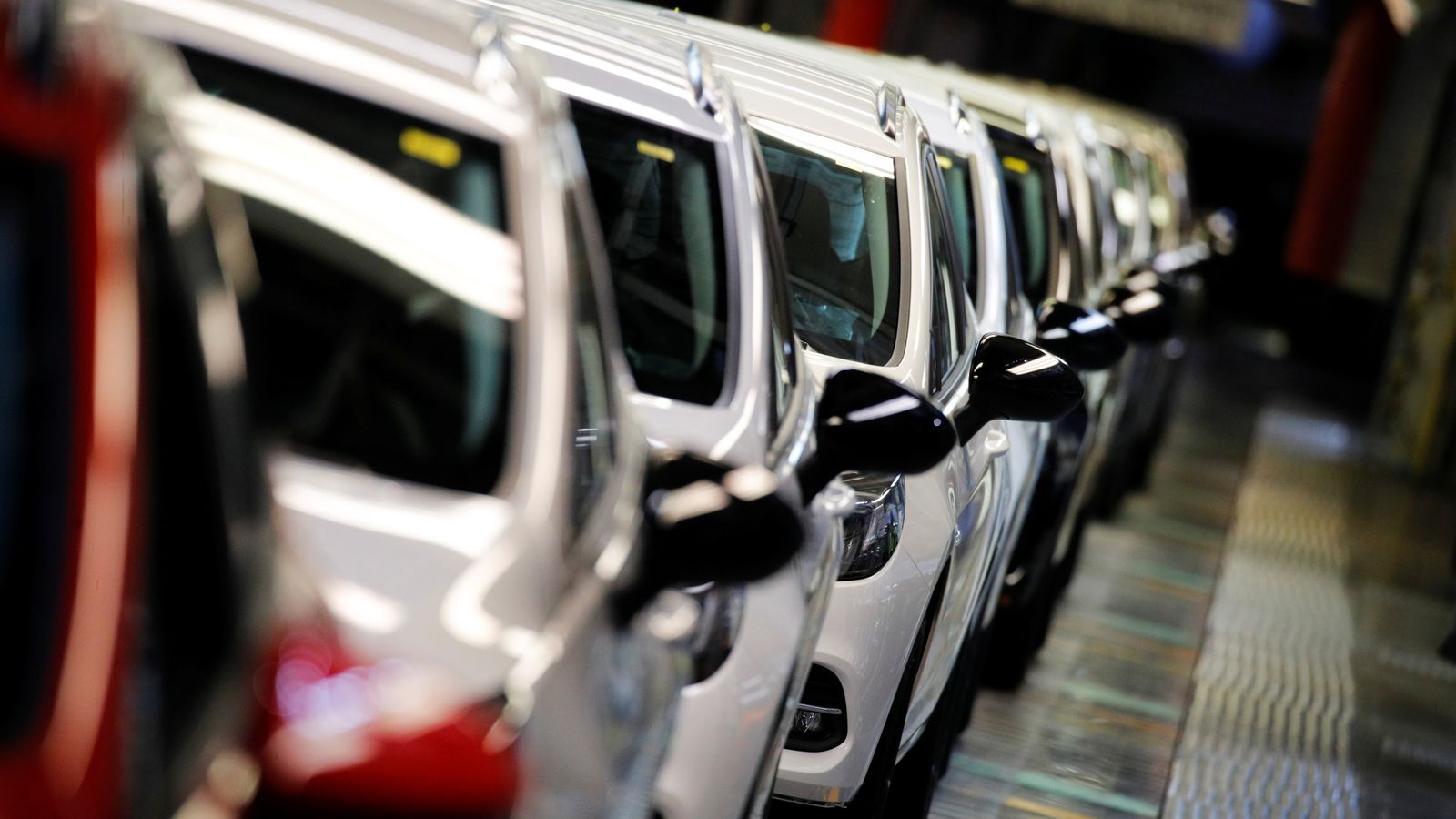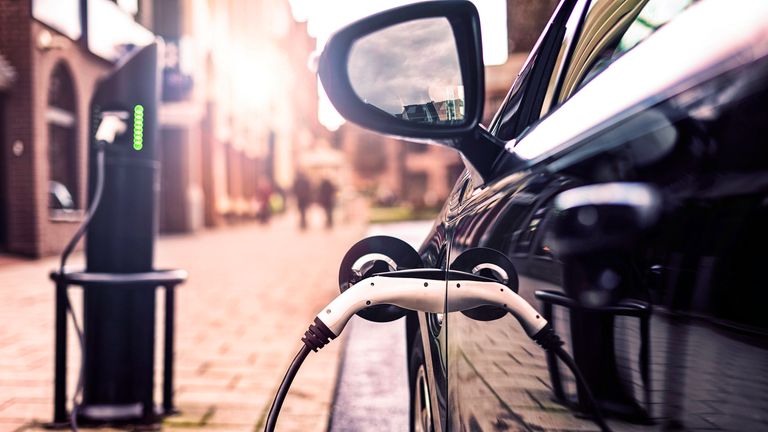UK carmakers have recorded their best September since 2020 – but warned growth is “under threat” from new Brexit export rules due to come into force within months.
More than 88,200 vehicles rolled off factory lines in September, an increase of over 25,100 – almost 40% – compared to the same time last year, figures published on Thursday reveal.
The Society of Motor Manufacturers and Traders (SMMT) described the period as a “triple success”, as it was also the sector’s strongest month of growth in 2023 so far and the best results for a September in three years.
The industry body said the rise was driven by a 32% growth in exports – with almost six in 10 vehicles going to the EU. Output of electric vehicles (EV) also soared by 41.5%.
SMMT chief executive Mike Hawes hailed the figures as “particularly strong” and “good news for the UK, given the thousands of jobs and billions of pounds of investment that depend on the sector”.
However, it comes only months before new “rules of origin” Brexit trade regulations are due to come into force in January 2024.
Under the measure, 45% of the value of an EV must originate in the EU or UK for it to avoid being slapped with a 10% trade tariff.
The target is harder to achieve for electric cars and vans, as most manufacturers rely on batteries produced in Asia and the components comprise a large proportion of the total value of such vehicles.
Read more from business:
Waitrose boss reveals target of brazen shoplifting gang
Profits up at UK’s biggest mortgage provider
Revenue up at Microsoft and Alphabet
The SMMT said the industry’s growth in the UK, particularly from the manufacture of EVs, was “under threat” from the imminent introduction of the new rules and called for them to be delayed by three years.
It warned the tariff could raise the average cost of UK-built battery electric vehicles by £3,600 in Europe, while EU-made models sold in the UK could experience an average price hike of £3,400.
Mr Hawes said: “Given the increasing importance of electrified car production, the first and urgent step is for the UK and EU to agree to delay the tougher rules of origin requirements that are due imminently.
“This would give the necessary breathing space for automotive sectors on both sides of the Channel to scale up gigafactories and green supply chains, both of which are essential for a stable, long-term transition.”
The SMMT said the volume of British cars exported to global markets has risen by 16%, to more than 500,000 units, since January, with EVs accounting for more than a third of shipments, up from a quarter a year ago.
Vauxhall’s parent company Stellantis has also called for a delay in the introduction of the rules – which are part of the 2020 Trade and Cooperation Agreement between the UK and EU.
Both the British and German governments have also been lobbying for the regulations to be changed, while BMW board member Milan Nedeljkovic told Sky News last month he was optimistic they would be eased.
A government spokesperson told Sky News: “We need a joint UK-EU solution to avoid consumers facing tariffs on electric vehicles from 2024 which do not apply to petrol and diesel cars.
“We have raised this with the European Commission and industry and are ready to work with them to find a solution within the existing structure of the Trade and Cooperation Agreement. The UK remains one of the best locations in the world for automotive manufacturing.”

